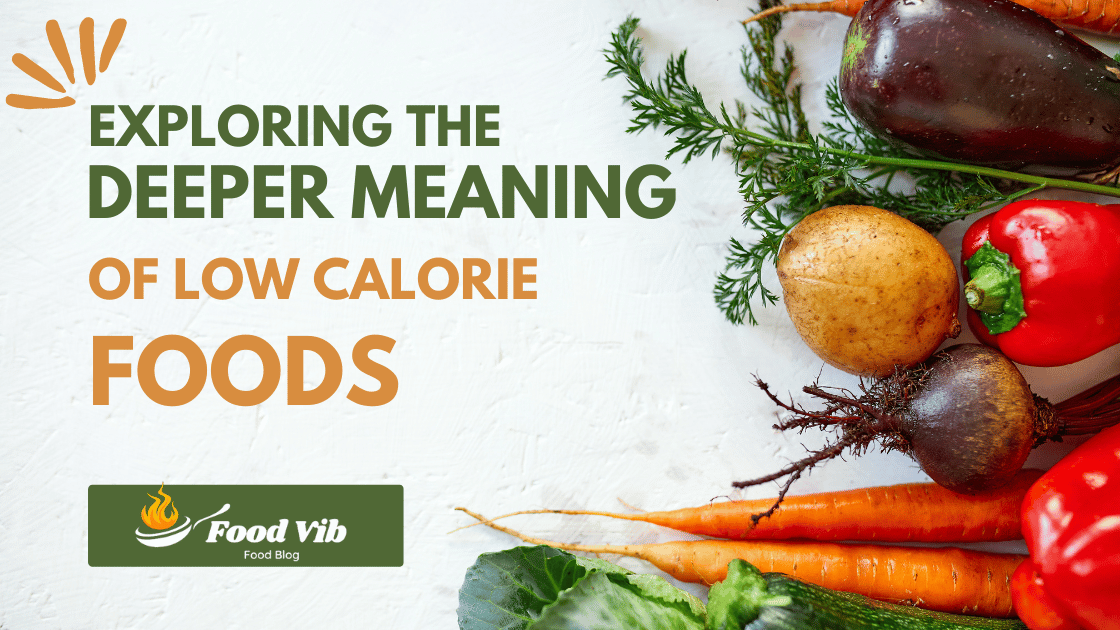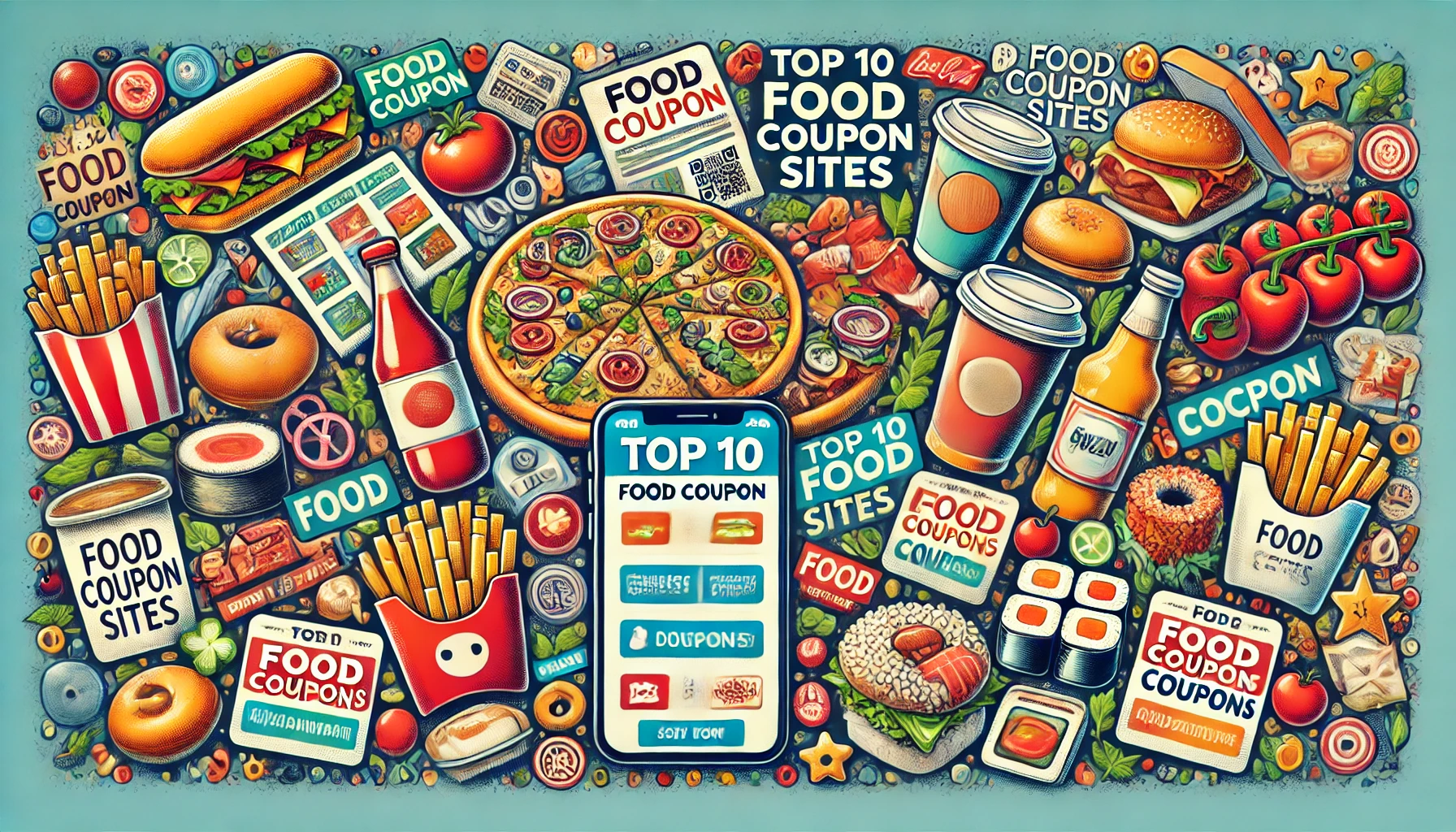Exploring the Deeper Meaning of Low-Calorie Foods

Low-calorie meals are in high demand as people’s awareness of their health issues has expanded dramatically. Even while these meals are often connected to diets and weight reduction, their appeal could have a deeper significance. We may better understand the effects of low-calorie meals on our bodies and general well-being by investigating their nutritional content and constituent makeup. Exploring the world of low-calorie meals offers various alternatives that may support a balanced and healthy lifestyle, from protein-packed selections to nutrient-dense veggies. So let’s learn the real importance of low-calorie meals in achieving maximum health.

Exploring the Deeper Meaning of Low-Calorie Foods
Unraveling the Nuances: Understanding the True Essence of Low-Calorie Foods
The phrase “low calorie” is typically the buzzword of choice in the constantly changing world of nutrition. Low-calorie foods have gained popularity among wellness seekers and health aficionados. Let’s explore the complex web of factors that combine to make these meals a lifestyle choice as well as a dietary one.
Defining Low-Calorie Foods
Low-calorie foods embody a conscious eating philosophy and are more than just the calories shown on a nutrition label. These are foods that are high in nutrients without being too high in calories. They provide an abundance of vitamins, minerals, and other vital elements without overtaxing the body with energy. They are the hidden heroes of a balanced diet.
The Science Behind Low-Calorie Choices
Understanding the science behind low-calorie foods is crucial to understanding their relevance. These meals are often high in fiber, which increases feelings of fullness and lowers total calorie intake. Furthermore, a lot of them need more energy to break down than they provide, which helps the body create a beneficial calorie deficit.
The Wellness Quotient: Benefits Beyond the Calorie Count
Weight Management and Beyond
Low-calorie foods are essential for managing weight and cannot be discussed without them. You may start your road towards sustained weight reduction or maintenance by including these items in your diet. Beyond the numbers, they improve general health by promoting a positive connection with food.
Nutrient Density: A Holistic Approach
Low-calorie foods are appealing for reasons other than weight loss. They often include a wealth of vitamins, minerals, and antioxidants. This nutritional density serves as a preventative strategy against several health problems in addition to supporting biological activities.
Navigating the World of Low-Calorie Options
Fresh Fruits and Vegetables
For low-calorie foods, fresh fruits and vegetables are the best options. These vibrant treats include a lot of nutrients in addition to being visually pleasing. With everything from colorful berries to leafy greens, nature provides an abundance of foods that fit the low-calorie philosophy.
Lean Proteins: A Satiety Powerhouse
Lean protein consumption is a calculated step toward adopting low-calorie foods. They not only support the health of muscles but also provide a sensation of fullness, which reduces needless snacking and encourages better eating habits.
Making Informed Choices: A Practical Guide
Reading Labels Wisely
It is a skill worth developing to be able to read nutritional labels in the age of pre-packaged convenience foods. Pay attention to the ingredient list and the nutritional profile as a whole rather than just the number of calories. Select foods that fit the low-calorie living philosophy and your health objectives.
Balancing Act: Moderation is Key
The focus is on low-calorie foods, but it’s important to stress that balance is as important. The secret is moderation, which guarantees a varied and balanced diet. Low-calorie living is a mindful, sustainable way of providing nourishment for the body; it is not the same as deprivation.
Embracing a Lifestyle of Nourishment
When it comes to nutritional decisions, low-calorie living is more than just counting calories. It represents a dedication to holistic well-being, in which every dietary decision supports mental and emotional as well as physical health.
Through our investigation into the deeper significance of low-calorie foods, we reveal a holistic approach to well-being, thoughtful decision-making, and nutritional knowledge weaved throughout the tapestry.
Must Read: Exploring the Delicious Cuisine of Pittsburgh1
How Do low-calorie foods Impact Our Health and Wellness?
The importance of low-calorie foods in terms of health and nutrition cannot be emphasized. Choosing a diet high in low-calorie foods may significantly improve our physical and mental health as we explore the complex link between our food choices and general health.
Understanding Low-Calorie Foods
Defining Low-Calorie Foods
Let’s start by making sure everyone knows exactly what low-calorie items are. In other words, they are meals that are low in calories per serving, which makes them a better option for those who are trying to control their weight or encourage a healthy lifestyle.
Nutrient Density Matters
A salient feature of low-calorie meals is their increased nutritional density. These meals are rich in vital elements including vitamins, minerals, and antioxidants, in contrast to empty-calorie choices. This helps to optimize general health in addition to supporting weight control.
The Health Benefits of Embracing a Low-Calorie Diet
Weight Management and Beyond
Effective weight control is unquestionably one of the most well-known advantages of including low-calorie meals in your diet. These meals provide a gratifying and long-lasting approach to weight management by enabling people to eat bigger quantities without worrying about consuming too many calories.
Enhanced Metabolic Function
A diet high in low-calorie items has been associated with enhanced metabolic function in addition to weight control. These meals often demand more energy to digest, which may increase metabolism, which is important for those trying to maintain or reach a healthy weight.
Reduced Risk of Chronic Diseases
A diet high in low-calorie foods is often linked to a lower chance of developing chronic illnesses including diabetes, heart disease, and several types of cancer. These meals’ high nutritional content is essential for strengthening the body against a range of health issues.
Practical Tips for Incorporating Low-Calorie Foods
Diversify Your Plate
For maximum benefit from low-calorie meals, opt for a bright and varied plate. To guarantee a well-rounded and nutrient-rich diet, include a variety of fruits, vegetables, healthy grains, and lean meats.
Mindful Eating Practices
Eating mindfully may sometimes be forgotten in the rush of contemporary life. Give each meal some thought and appreciation, and let yourself experience sensations of contentment and fullness.
Must Read: The Surprising Reasons Chinese Food Makes You Hungry
The Top 5 Benefits of Delving into the Deeper Significance of Low-Calorie Foods
In the dynamic field of nutrition, emphasis is often placed on food choices that enhance our general health in addition to providing nourishment. Low-calorie foods are one such aspect that is garnering significant attention. These foods provide a host of advantages that go well beyond their apparent help with weight control and touch the very foundation of our health and vigor.
1. Weight Management Reimagined
Leading the list of benefits of consuming low-calorie foods is a ground-breaking strategy for managing weight. In contrast to conventional restrictive diets that might make people feel restricted, emphasizing certain items enables a more freeing strategy. One gratifying and long-lasting way to reach and maintain a healthy weight is to be able to eat more without worrying about consuming too many calories.
2. Energizing Metabolic Boost
Looking more closely at the metabolic effects, low-calorie foods have been shown to act as catalysts, giving our metabolic processes a much-needed energy boost. These nutrient-dense foods need more energy for the body to process, which might speed up metabolism. This metabolic boost promotes a more lively and active lifestyle in addition to helping with weight management.
3. Fortification Against Chronic Diseases
A diet high in low-calorie foods is a powerful defense against chronic illnesses, as shown by recent research findings. These meals are rich in nutrients, which fortify the body’s defenses and reduce the risk of diseases including diabetes, heart disease, and certain types of cancer. We proactively support our long-term resilience and health by including these nutrients in our regular diet.
4. Cognitive Clarity and Mental Well-Being
Foods that are low in calories have a beneficial effect on mental and cognitive health in addition to the physical body. Nutrient-rich foods have been associated with enhanced concentration, better brain health, and a lower chance of cognitive decline. We create the conditions for a more robust and intelligent mind when we provide our bodies with the proper nutrition.
5. Holistic Nutritional Enrichment
In addition to tracking calories, a comprehensive approach to nutrition includes diligently providing our bodies with the necessary nutrients. This strategy is best represented by low-calorie foods, which are rich in vitamins, minerals, and antioxidants. These components maintain healthy skin, strong immunity, and general vigor in addition to supporting body processes.
Embracing the Deeper Significance
To put it simply, learning about the deeper meaning of low-calorie foods has transforming advantages. These foods present themselves as genuine friends in our pursuit of optimum health, from revolutionizing weight control to strengthening our bodies against the assault of chronic illnesses. Allow us to explore the deep depths of low-calorie foods as we negotiate the complex terrain of nutrition, opening up a plethora of advantages for a more vibrant, healthier existence.
Must Read: The Ultimate List of Foods Without Calcium and Iron
FAQ ( Frequently Asked Questions)
What is a low-calorie diet explanation?
A low-calorie diet entails ingesting fewer calories than one's usual consumption. It may aid in weight reduction by generating a calorie deficit and is often used as a weight control technique.
What are low-calorie foods?
Foods having a low energy content per serving are considered low-calorie. Whole grains, lean meats, and fruits and vegetables are a few examples. These nutrient-dense meals provide important vitamins and minerals without significantly increasing total caloric consumption.
What does it mean to eat fewer calories?
Reducing the daily consumption of foods high in energy is the first step towards eating fewer calories. This may result in a calorie deficit, which will force the body to burn fat that has been stored as fuel, which may cause weight reduction.
How do low-calorie foods contribute to weight management?
Foods low in calories help people control their weight by enabling them to eat greater quantities for less calories. This may sustain the calorie deficit required for weight reduction or maintenance while promoting a sensation of fullness.
Can you provide examples of low-calorie snacks?
Indeed, air-popped popcorn, sliced fruit, Greek yogurt with berries, and raw veggies with hummus are a few low-calorie snack options.
Is it necessary to completely eliminate high-calorie foods for effective weight management?
No, cutting out high-calorie items entirely is not essential. Balance and moderation are crucial. Even with smaller servings of higher-calorie items, maintaining a balanced diet may help with weight control.
How can one create a sustainable low-calorie diet plan?
A variety of nutrient-dense meals, portion control, drinking plenty of water, and regular exercise are all important components of a long-term low-calorie diet plan. Personalized advice may also be obtained by speaking with a certified dietician or other medical expert.
Are there potential health risks associated with extremely low-calorie diets?
Indeed, very low-calorie diets may cause muscle loss, vitamin deficits, and other health problems. Making ensuring a low-calorie diet still satisfies nutritional requirements and is followed under appropriate supervision is crucial.
How can one balance a low-calorie diet with maintaining energy levels?
A low-calorie diet must balance energy levels, so eat a variety of foods high in nutrients, such as carbs, proteins, and fats, and space meals out throughout the day. Maintaining energy levels may also be facilitated by frequent, moderate exercise and enough water.






3 Comments